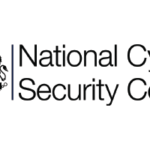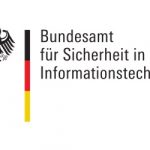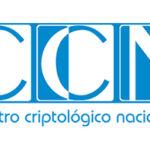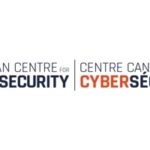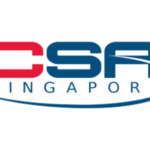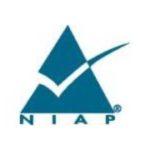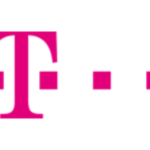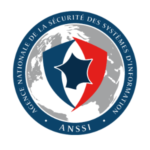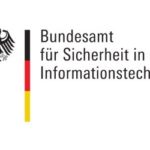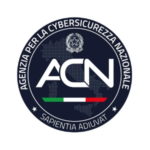Program – Full Style
Caption Lines HereDay 1
30 Oct 2018
2:00 pm - 2:30 pm
Track Keynote: Why I Care About the Security of Your Car (A12a)
Traditionally verification in automotive was centered around safety, protection against unintentional problems. Now it is time to look at security, or how do we protect against intentional problems? We show... Read More
Track Keynote: How Europe’s Cyber Security Act and CCRA Can Be Best Friends (U12a)
Currently Europe implements a Cyber Security Act (CSA) which amongst others sets up a European IT-Security certification framework. It is more than an educated guess that the first implementation of... Read More
2:30 pm - 3:00 pm
Robustness Propagation Through Systems of Heterogeneous CC Components (A12b)
IoT systems become highly dynamic and configurable raising evaluation difficulties. They have multiple components with different robustness levels. Connect the components’ security functions during integration is essential. Our “Lego” methodology... Read More
2:30 pm - 3:00 pm
Ballroom C
Brexit, the EU Cyber Security Act, and Product Assurance in UK and the EU—An Update (U12b)
Following on from a presentation at ICMC 2018, this presentation will provide an update on progress with Brexit, the development of ENISA under the EU cyber security act; and the... Read More
Why Composite Evaluations Fail (A13a)
The topic of this presentation is the current approach for composite evaluations (where a hardware platform is evaluated separately from the software running on the hardware) and its failure to... Read More
A Compositional Certification Methodology For a COTS-Based System (A13b)
The aim of this presentation is providing an overview of the compositional security certification methodology to be used in the scope of MILS (Multiple Independent Levels of Security) evaluations and... Read More
5:00 pm - 5:30 pm
Evaluation of Distributed Products in the CC Paradigm (A13c)
Distributed products evaluated under the Common Criteria paradigm have their own set of unique challenges. The Network Device iTC has supported distributed TOEs since the release of Network Device Collaborative... Read More
Day 2
31 Oct 2018
9:00 am - 9:30 am
Introducing the Partner Program Certification Concept (A20a)
The FIDO Alliance, a 250+ member association developing specifications and certification programs for simpler, stronger authentication, announced back in March 2018 the expansion of its certification program to include multi-level... Read More
Basissicherheitszertifizierung (BSZ)—An Alternative Means to Achieve Assurance (A20b)
This session will present a new approach – BSZ – in the German scheme (comparable to CSPN in France) which aims at providing assurance while drastically reducing both time as... Read More
10:00 am - 10:30 am
TEE Certification: Managing Risk for Digital Services (A20c)
GlobalPlatform will present the use of Common Criteria to build a Trusted Execution Environment (TEE) security scheme. The speech will cover; Lessons learnt within the TEE ecosystem, The latest evaluation... Read More
11:30 am - 12:00 pm
Common? C’mon! (A21b)
Common? C’mon! Over the years, the CC have struggled to establish a common understanding of where the bars shall be positioned that products must clear for a certain certification level.... Read More
PP v/s EAL: Where Does Security Assurance Reside? (M22b)
Over the last few years Common Criteria has gone through a major change, some would say an upheaval. With the move to PP/cPP based exact conformance paradigm, two distinct schools... Read More
2:30 pm - 3:00 pm
Ballroom A
Modular PPs: The Building Blocks of Tomorrow (A22b)
The concept of PP-Modules was added to the CC in 2017. The first PP-Modules are just now being written and published for public consumption. As a new concept, vendors and... Read More
Next-Generation Tooling to Develop Protection Profiles, Automate Security Target Generation, and Support Evaluation Activity Reporting (A23b)
The speakers will showcase tooling that is freely available to the Common Criteria community on GitHub at https://github.com/commoncriteria. Major contributions include: (1) Development of a formally-defined XML schema that provides... Read More
Day 3
16 Nov 2020
1:00 pm
1:05 pm-1:35 pm
Keynote: Securing the Edge: The Role of Third-Party Security Verification (P00b)
Connected devices are becoming a major part of all our lives. Dedicated connected devices are becoming more and more use case based, targeting for example, industrial applications, household applications, automated... Read More
1:35 pm
1:50 pm
2:05 pm
Panel Discussion on EUCC and CCRA: Market Impact (P00f)
Session description TBA
4:00 pm-4:30 pm
FIA’s OTP Security—a Common Criteria Approach (M01a )
The FIA (Fédération Internationale de l’Automobile) is currently publishing a report of the “On-Board Telematics Platform (OTP) Security”. It addresses the importance for Mobility Clubs and Independent Service Providers (ISP)... Read More
ISO/IEC JTC 1/SC 27/WG 3, Current Status, Roadmap and Challenges (R01a)
Session Description TBA
4:30 pm-5:00 pm
The Road to Smart Meter Security Requirements Acceptance (M01b)
CEN/CENELEC/ETSI and Smart Meter developers (ESMIG) started 7 years ago an initiative that resulted in a certified smart meter Protection Profile based on requirements from various countries and in line... Read More
4:30 pm-5:00 pm
Changes in the ISO/IEC 15408 General Model (R01b)
An update from the editors of ISO/IEC 15408 General Model.
5:00 pm-5:30 pm
eHealth: Infrastructure and Evaluation in Germany (M01c )
Digitalization of health systems is an ongoing process worldwide. This presentation gives an overview of the German eHealth scheme which is currently being established. Interaction of technical components (smart cards... Read More
5:00 pm-5:30 pm
Adopting the New Evaluation Methods and Activities in ISO/IEC 15408-4 (R01c)
The new ISO version of Common Criteria introduces an extra part 4 that defines a framework for deriving Evaluation Activities from work units of the CEM (ISO/IEC 18045) and grouping... Read More
5:30 pm-6:00 pm
SGS and Graz University of Technology Announcing Launch of New Cybersecurity Research Center (P01d)
In 2019, SGS and Graz University of Technology (TU Graz) announced the Cybersecurity Campus Graz, where SGS then located its global headquarter for Cybersecurity Services next to TU Graz’ Cybersecurity... Read More
6:00 pm-6:30 pm
FIPS vs CC: What Drives Certification Demand for HSMs? (M02a)
Product security certifications in today’s ever-changing environment are impacting traditional markets. Common Criteria certification demand has soared in the European regulated markets for digital signature (eIDAS), deprecation of NIST algorithms... Read More
6:00 pm-6:30 pm
Biometrics Security iTC Update (U02a)
An update on the current status of the BIO-iTC, with a focus on the PAD toolboxes and how the requirements compare to the FIDO Alliance Biometric Certification program. The presentation... Read More
6:30 pm-7:00 pm
Protection Profile for SaaS Multi-Tenant Cryptographic Isolation (M02b)
Presented is a customer experience journey in creating a draft Protection Profile for multi-tenant Software-as-a-Service (SaaS) applications running in a commercial public cloud. We define the security problem, threats, and... Read More
6:30 pm-7:00 pm
Network Device iTC Update (U02b)
The presentation includes an update of the ND iTC since the last ICCC, latest NDcPP and module postings, where we are today and what we are planning.
7:00 pm-7:30 pm
Day 4
17 Nov 2020
1:00 pm-1:30 pm
Track Keynote: Meeting Customer Requirements with Unified Verification Standard (M10a)
Session Description TBA
1:00 pm-1:30 pm
1:30 pm-2:00 pm
Trust Model for Verticals Over 5G (M10b)
5G systems support a wide range of verticals leading to different sets of security requirements. Some of these can be communalized, while others are exclusive to specific usages or associated... Read More
1:30 pm-2:00 pm
Hardcopy Devices iTC Update (U10b)
The purpose of the Hardcopy Devices collaborative protection profile (HCD cPP) is to facilitate efficient procurement of Commercial Off-The-Shelf product using the Common Criteria methodology for information technology security evaluation.... Read More
2:00 pm-2:30 pm
You want what? By when?? …. Ok! (M10c)
We were already in an era where new TOEs must be on the market like clockwork: this year’s phone must be evaluated, certified, and production must have started, before the... Read More
2:00 pm-2:30 pm CET
KSO3C: Polish Schema for Evaluation and Certification Compliant with Common Criteria—Last Step Towards Recognition (U10c)
The project “National schema for the security and privacy evaluation and certification of IT products and systems compliant with Common Criteria” (KSO3C) is being implemented by a scientific consortium composed... Read More
2:30 pm-3:00 pm
atsec – All You Would be Looking for(P10d)
Join atsec colleagues from Germany, Italy, Sweden, China and the US for an overview of atsec’s global InfoSec service offerings with a special focus on Common Criteria for the ICCC.... Read More
3:00 pm-3:30 pm
Reading Between the Lines, A Biometric Acceptance in Malaysia Voyage (S11a)
Malaysian has been using biometric fingerprint since 2001 when MyKAD first introduced. In the next few years, we envision a whopping change in trend since the other biometric modalities have... Read More
3:00 pm-3:30 pm
Spanish Scheme Update (U11a)
This presentation by the Certification Body of the CCN is oriented to provide an update of the certification activities of the Spanish Scheme. In the last two years, the scheme... Read More
3:30 pm-4:00 pm
Outbreak Impact in CC (S11b)
COVID-19 outbreak has brought difficulties and new challenges to the entire industry, including CC evaluations and certifications. Maintaining the CCRA terms in this new pandemic scenario is crucial, for which... Read More
3:30 pm-4:00 pm
ISCI-WG1 Contribution to the Common Criteria Methodology Improvement and Usage (U11b)
ISCI-WG1 is a key contributor in the Common Criteria (CC) and SOG-IS certification ecosystem. This talk is about ISCI-WG1 2020 achievements and how to tackle new challenges. Currently, ISCI-WG1 includes... Read More
4:00 pm-4:30 pm
End-to-End Side-Channel Detection Methodology (S11c)
Side-channel evaluation relies, for CC labs, on the lab expertise. However, owing to the dissemination of SCA requirements, a formal methodology is welcomed. Pioneering work done in ISO/IEC 17825 —... Read More
4:00 pm-4:30 pm
2020 Statistics Report. Is the Industry Surviving to Lockdown? (U11c)
CC Scraper is a python script that analyses automatically the information from the CC portal using OCR capabilities, pdf reading and other features providing a comprehensive statistics report of the... Read More
4:30 pm-5:00 pm
JHAS Rating Approach and Assessment of SW Vulnerabilities—All ITSEFs Will Become Hackers (S11d)
We start from a question: How do we rate overall attack resistance level of a solution which is subjected to software exploitation attacks? In this presentation, we discuss solutions currently... Read More
4:30 pm-5:00 pm
Using the Common Criteria in Canada (U11d)
This presentation will focus on the goals of CC certification in Canada, such as international collaboration, economic benefits, and assistance to government, critical infrastructure, and non-traditional applications. Our experiences with... Read More
5:30 pm-6:00 pm
Towards Creating an Extension for Patch Management for ISO/IEC 15408 and ISO/IEC 18045 (S12a)
Common Criteria (CC) or ISO/IEC 15408 allows the certification of the assurance of IT products. The standard has proven to be flexible for high-security use-cases especially for secure elements, security... Read More
5:30 pm-6:00 pm
NIAP Update (U12a)
An update on efforts by NIAP.An update on efforts by NIAP.An update on efforts by NIAP.
6:00 pm-6:30 pm
The Changes of Change Management (S12b)
Evolution of the management of the changes in Common Criteria through the work of the ISCI WG1 “Changing certified products” subgroup and Thematic Group 5: “Continuity assurance and handling of... Read More
6:00 pm-6:30 pm
A Transition to New Algorithms: Encryption, Key Establishment and Entropy—the CMVP Perspective (U12b)
NIST has announced a transition to new algorithms that affect a wide range of cryptographic functions. The Triple-DES algorithm will be retired. The standards for key agreement, key transport and... Read More
6:30 pm-7:00 pm
Results on Automating National Information Assurance Partnership (NIAP) Requirements Testing for Mobile App Vetting (S12c)
U.S. government agencies need to quickly and affordably assess whether their mobile apps are compliant to NIAP’s Protection Profile for Application Software. A pilot conducted by DHS proved automated app-vetting... Read More
6:30 pm-7:00 pm
NIAP Automation Work Update and Demo (U12c)
An update and demonstration of recent automation work by NIAP.
Day 5
18 Nov 2020
1:00 pm-1:30 pm
1:00 pm-1:30 pm
Automotive Cyber Security (L20a)
The Automotive market is undergoing a massive digital and cultural transformation. Traditionally driven by safety standards, the market is now adopting the new cyber security requirements in different shapes and... Read More
1:30 pm-2:00 pm
1:30 pm-2:00 pm
What About 5G Certification (L20b)
This presentation will give an overview of several initiatives for security evaluation and certification of 5G components, products or solutions. What are the technical challenges? What are the solutions? Is... Read More
2:00 pm-2:30 pm
Cryptographic Agility in Security Standards (A20c)
More and more standards include the requirement for cryptographic agility. Although, these are just two simple words, they have a significant impact on how systems are designed around cryptographic algorithms.... Read More
2:00 pm-2:30 pm
3:00 pm-3:30 pm
Application of the Common Criteria to Building Trustworthy Automotive SDLC (A21a)
The car industry’s digital transformation exposes new cybersecurity threats. In order to solve this, various standardizations on automotive cybersecurity are in progress, the most representative of which are the UNECE... Read More
3:00 pm-3:30 pm
Strong Digital Identity as an Enabler for Adaptive Security and How It Fits into Certification (L21a)
Data is the lifeblood of the connected world. Data is gathered, stored, analyzed, and acted upon. This data is also an enabler in combating attacks from small to large scale.... Read More
3:30 pm-4:00 pm
Evolution Towards Evaluation of HW IP Blocks (A21b)
Eurosmart ITSC, the evolution towards evaluation of HW IP blocks and the importance of vulnerability analysis and pen-testing against a properly defined PP to guarantee a high-level of security assurance.
3:30 pm-4:00 pm
Composite Evaluations: The Way Forward for IoT Security and Compliance (L21b)
What do PCI, DTSec, ETSI EN 303645 and IEC 62443-4-2 have in common? As the number of IoT security certification frameworks used in public and private sectors, and across multiple... Read More
4:00 pm-4:30 pm
How ‘By-Parts’ Evaluation Achieves Certification Scheme Scalability (A21c)
Conciliating product-based security and IP-protected third-party supplies has become a cornerstone for certification schemes in many sectors. Chip manufacturers, for example, are looking to protect their IP from software providers... Read More
4:00 pm-4:30 pm
Certifying IoT Devices: Challenges from the Real World (L21c)
There is no doubt that the state of security of IoT devices, especially Consumer IoT, could be significantly better. Compared to other industries, the security maturity level of the IoT... Read More
4:30 pm-5:00 pm
Soft IP Certification, a Glimpse into the Future (A21d)
The next CC version will incorporate the Composite evaluation methodology as it has been already successfully used for decades within the domain of smart cards and similar devices. Composition evaluations... Read More
4:30 pm-5:00 pm
The EMVCo Security Evaluation Processes for IoT (L21d)
In an increasingly connected world, use cases across various IoT verticals now require payment functionality. This includes retail and e-commerce, smart home and entertainment, consumer wearables and mobile payment applications,... Read More
5:00 pm-5:30 pm
Securyzr iSE: An integrated Secure Element to Easily Reach your CC Certification (P21d)
Securyzr iSE is an integrated Secure Element. It offers multiple services to the host system (ECU, IoT, iUICC, etc.) various services such as Secure Boot, Key management, etc. all along... Read More
5:30 pm-6:00 pm
Formal Models for High-Assurance: Why and How (A22a)
EAL6 certifications have recently gained terrain. With CCv4 within reach and with an extensive experience in formal evaluations, the French and German schemes are proposing a formal methods usage approach... Read More
5:30 pm-6:00 pm
Industrial Automation Control Systems Cybersecurity Certification – Chapter II (L22a)
At ICCC 2019, we presented the work that had been carried out since 2014 by the ERNCIP (European Reference Network for Critical Infrastructure Protection) IACS Thematic Group towards the creation... Read More
6:00 pm-6:30 pm
Qualcomm’s View on EUCC and Importance of Composition and Re-Use in Certification (A22b)
Session Description TBA
6:00 pm-6:30 pm
Common Criteria Vs FedRAMP (L22b)
Common Criteria squarely targets products meant for on-prem. However, increasingly cloud services and containers are becoming increasingly becoming more and more important. Common Criteria risks of becoming slowly irrelevant if... Read More
6:30 pm-7:00 pm
Cloud and Common Criteria: NWI ISO Proposal (A22c)
The Common Criteria has been a framework for product evaluation of security functions since its inception in the late 1990s. As DevOps became the trend for development of agile cloud... Read More
6:30 pm-7:00 pm
You, Me and FIPS 140-3: Open for Business! (L22c)
September 21st, 2020 FIPS 140-3 was officially declared open for business! After years of waiting CMVP are now accepting validations based on ISO/IEC 19790 and ISO/IEC 24759. Building on his... Read More
Day 6
19 Oct 2021
1:00 pm-1:30 pm
URWP Update (L10a)
The society in which we live is rapidly digitalising, more devices are developed, used and connected to each other, creating a digital ecosystem in which cyber incidents can have a... Read More
1:10 pm-1:40 pm
1:40 pm-2:10 pm
2:10 pm-2:25 pm
2:25 pm-2:40 pm
2:40 pm-2:55 pm
CCUF Update (P00d)
The Common Criteria User Forum provide a voice and communications channel among the CC community including the vendors, consultants, testing laboratories, Common Criteria organizational committees, national schemes, policy makers, and... Read More
3:00 pm-3:30 pm
A Proposal of Security Evaluation for Microcontroller-Based IoT Devices (M11a)
In order to accommodate the growing need for IoT devices, this presentation proposes a security evaluation of these devices in the common criteria framework. We present ongoing work in Japan... Read More
Panel Discussion on EUCC (P00f)
An expert panel focused on the potential implications EUCC will have for the Common Criteria landscape.
4:00 pm-4:30 pm
4:30 pm-5:00 pm
Transition to ISO/IEC 15408 and ISO/IEC 18045 : New Concepts and Changes (R02a)
The fourth edition of the ISO/IEC 15408 and ISO/IEC 18045 standards includes substantial changes. It introduces new mechanisms (multi-assurance, composition, direct rationale, exact conformance, evaluation methods, etc.) to address the... Read More
Security Technology Standards Matrix: A Tool to Understand Global Security Requirements and Simplify Compliance (L02a)
Worldwide the number of security regulations for end devices is increasing. From the US and Latin America, to Europe and across Asia, more National Agencies are launching their own mandates... Read More
5:00 pm-5:30 pm
The ISO/IEC 15408 and 18045 (Common Criteria) Development Road Map (R02b)
While working on the update to the ISO standards ISO/IEC 15408 and 18045 (“Common Criteria”) the editors and experts in SC27 WG3 recently launched a call for contributions for their... Read More
5:00 pm-5:30 pm
Common CC Criteria: Another Key to Efficiency (L02b)
We are continuously looking for efficient applications of the Common Criteria (CC). We create optimised methodology, utilise highly experienced people, and operate smooth processes to achieve that within the traditional... Read More
5:30 pm-6:00 pm
GlobalPlatform Certifications – Streamlining Security for Connected Industries (L02c)
Technical standards organization, GlobalPlatform, will provide the latest updates to its security certification scheme, and explain how they are providing an industry-proven framework for manufacturers to build, labs to evaluate... Read More
5:30 pm-6:00 pm
Trends in Security Assessment (R02c)
Just as information and communication technology evolves, so do the security standards against which they are assessed. This presentation will provide an overview of established and emerging security standards and... Read More
6:00 pm-6:30 pm
6:30 pm-6:50 pm
Network Device iTC Update (U03a)
The presentation includes an update of the ND iTC since the last ICCC, latest NDcPP and module postings, where we are today and what we are planning.
6:30 pm-7:00 pm
Augmenting Patch-Management (ALC_PAM) in CC (A03a)
Patch-Management and how to maintain the level of assurance is one of the longest and challenging problems in the application of CC. The new Patch-Management concept based on an early... Read More
6:50 pm-7:10 pm
Perseverance Always Pays Off—A DBMS iTC Update (U03b)
After many years of hard work, the Database iTC published their first cPP in 2020. With the iTC forming in 2018, this may initially look like a short timeline. In... Read More
7:00 pm-7:30 pm
Reconciliation of Patch Management Methods for Smartcards and Similar Devices (A03b)
Smartcards and similar devices are key fundamentals building blocks of today’s security, being included within all devices such as mobile phones, smart home, IOT and getting their way within cars... Read More
7:10 pm-7:30 pm
Biometrics Security iTC Update (U03c)
An update on the current status of the BIO-iTC, with a focus on the current set of documents under public review. The presentation will also discuss the PAD toolboxes and... Read More
7:30 pm-7:50 pm
Hardcopy Devices iTC Update (U03d)
Hardcopy Devices international Technical Community (HCD iTC) is a technical community to facilitate an efficient procurement of hardcopy devices using the Common Criteria methodology for information technology security evaluation. Recently,... Read More
7:30 pm-8:00 pm
Assurance-Oriented Fuzzing: Growing the Requirements and the Practice (A03c)
Usually we say that the meaning of an assurance level is the set of evaluation activities that have been carried out. But it can be hard to relate those technical... Read More
Day 7
20 Oct 2021
1:00 pm-1:30 pm
Australia Scheme Update (U10a)
The ACSC leads the Australian Government’s efforts to improve cyber security. Its role is to help make Australia a safe place to connect online. This session will present an update... Read More
1:30 pm-2:00 pm
1:30 pm-2:00 pm
2:00 pm-2:30 pm
India Scheme Update (U10c)
The presentation will provide brief of India scheme, scope of activities and future plan.
2:00 pm-2:30 pm
EU Common Criteria Information Sharing and Analysis Centre (EU CC ISAC) (L10c)
A proposal to support the maintenance of the EU CC Scheme. Implementing the EU Common Criteria Scheme (EU CC Scheme) under the European Cybersecurity Certification Framework will take over the... Read More
2:30 pm-3:00 pm
Automating Common Criteria (P01d)
jtsec will provide its view on how automatization will be a key factor in the Common Criteria evolution for the whole community (developers, evaluators and certifiers.)
3:00 pm-3:30 pm
Germany Scheme Update (U11a)
Scheme Update from the German Federal Office for Information Security (BSI).
3:20 pm-4:00 pm
Update on Integrated Secure Element Evaluation—Secure Sub-System (3S) in SoC PP (M11b)
The session will present the latest activity of Eurosmart-ITSC: Secure Sub-System (3S) in SoC Protection Profile [PP-0117]. This PP describes the trend of integrated security sub system in SoC, such... Read More
3:30 pm-4:00 pm
4:00 pm-4:30 pm
Unexpected Side Effect of the CSA—How CABs Could Demonstrate Their Competency in Information Security Area? ITSEF Use Case (U11c)
In 2020, first European cybersecurity certification scheme was published under the name EUCC. In general, it is intended to be a successor of SOG-IS MRA i.e. the Agreement that gathers... Read More
4:00 pm-4:30 pm
Pwning All the IoT (M11c)
Mobile app security is often the weak spot in the Internet of Things. A specific issue we find time and again are Insecure Direct Object References (IDORs) in the APIs... Read More
4:30 pm-5:00 pm
Automotive Chips Requirements: ISO 26262 & ISO/SAE FDIS 21434 (M11d)
The automotive market is encountering a revolution, under the combined effect of electrification and the progress of advanced driver-assistance systems (ADAS). Electronic chips require to meet very high standards in... Read More
4:30 pm-5:00 pm
2021 CC Statistic Report (U11d)
CC Scraper is a tool developed by jtsec four years ago that that analyses automatically the information from the CC portal using OCR capabilities and other features. Including detailed insights... Read More
5:30 pm-6:00 pm
A year in the life of Network Equipment Security Assurance Scheme (NESAS) (L12a)
This presentation will cover the following; Overview of GSMA and 3GPP defined NESAS Progress made on vendor auditing and product evaluations NESAS in the context of the EU Cyber Security... Read More
6:00 pm-6:30 pm
Automation Update: Validation Rules and The Big Picture (U12b)
For a couple of years now, NIAP has been promising that someday its validators would be replaced by an army of Common Criteria-aware robots. We are one step closer to... Read More
6:00 pm-6:30 pm
Network Component Certification—Should I Use NESAS or NDcPP? (L12b)
The goal of this presentation is to highlight the similarities and differences of NESAS and NDcPP certification. In particular the situation for components that can be used in both, mobile... Read More
6:30 pm-7:00 pm
Support for QKD Device Evaluations: The Common Criteria Protection Profile for Prepare and Measure Quantum Key Distribution Modules (L12c)
Quantum Key distribution (QKD) is a vivid and fast developing field where many devices are in a pioneer or prototype stage, deployment of QKD devices in communication infrastructures is planned,... Read More
6:30 pm-7:00 pm
CCCAB Tool, Making CABs Life Easy (U12c)
CCCAB (Common Criteria Conformity Assessment Body) Tool is a unique framework that will allow Common Criteria CABs to smooth the certification process for ICT products, reducing the cost and time... Read More
Closing Panel Discussion: ISO Update (P13a)
Expert panelists including users of the standard (schemes) and editors of the standard will discuss the future needs of the EUCC.
Day 8
15 Nov 2022
9:15 am
Government Keynote Address: Certification as a Key Element for Cybersecurity (P10b)
Luis Jimenez was unable to attend. Jose Miguel Loste from the Centro Criptologico Nacional of Spain presented.
The Long and Winding Road (L12a)
It’s been a while since an ICCC was hosted in Spain. This presentation will provide an historic view on the evolution of the CC standard, market, actors, as well as... Read More
2:15 pm
NIAP Looking Forward (U12a)
Highlight contributions that NIAP has made to the Common Criteria Recognition Arrangement by leading in Product Evaluations, Liaison between CCDB and CCUF, and serving as the CCMC Chair through 2023.... Read More
2:45 pm
Good, Fast, Cheap: Why Not All Three? (A12a)
I know, I know: some of us come to the ICCC to complain that the CC only meets 1, maybe 2 of these goals. For possibly more years than we... Read More
2:45 pm
2022 CC Statistics Report: Will This Year Beat Last Year’s Record Number of Certifications? (L12b)
CC Scraper is a tool developed by jtsec 5 years ago that that analyses automatically the information from the CC and CBs portals using OCR capabilities and other features. Including... Read More
2:45 pm
Guidance Development and Awareness Raising on EU Certification (U12b)
ENISA’s mission is not only to develop the future European Cybersecurity Certification Schemes and related documents but also to make sure the ecosystem has all tools in hand to apprehend... Read More
2:45 pm
Security: The Second Wave of Convergence (A12b)
During the 1990’s the introduction of the internet, web browser, email and resulting electronic services led to an initial commercialization wave of crypto and security technologies. During this time security... Read More
Confidential Security Evaluation Environment (A13a)
Is it possible to establish a confidential assurance environment that will allow independent 3rd party evaluators to conduct software security analysis of vendor proprietary (sensitive) software, while preserving the confidentiality... Read More
3:45 pm
Automotive Cybersecurity: Could You Trust the Connected Car? (D13a)
The Internet of Things (IoT) has the potential to connect everything with everything else even in the automotive sector: Vehicles are increasingly connected to backend services and corresponding business models.... Read More
3:45 pm
Strategic Views on Scheme Development (U13a)
In this session you will receive all information necessary to know what’s about to happen in the EU Cybersecurity certification ecosystem and the conformity assessment developments related to the Cyber... Read More
4:15 pm
Smartcard and Similar Devices Site Audits and Cloud Applications (A13b)
Within the smartcard and similar devices domain, the site audit must complain to MSSR (Minimum Site Security Requirements). Some of the developer applications to be considered are no more hosted... Read More
4:15 pm
CCC Digital Key: A Worldwide Standard That Enables Our Mobile Devices to Replace Traditional Keys to Give Access to Our Vehicles (D13b)
The Car Connectivity Consortium (CCC) consisting of over 150 members has developed a protection protocol to securely store, authenticate, and share digital keys in mobile devices and vehicles. The CCC... Read More
4:15 pm
An Update on the EUCC Scheme (U13b)
ENISA will provide an update on the progress of the EUCC scheme, including its supporting elements (guidance and state-of-the art documents, website, maintenance).
ISCI WG1—High-Secure Remote Work—The Response to the Post-COVID Hybrid Mode Demand (A13c)
The COVID-19 pandemic crisis that hit the world in 2020, forced many companies to enable remote working opportunities to continue their operation while minimizing the amount of staff that had... Read More
4:45 pm
Common Criteria in the Automotive Security Regulatory Domain—CC-Based Automotive Risk Assessment (D13c)
Since July 2022, vehicle manufacturers who aim to place their new vehicles in countries including the EU, UK, Japan, South Korea and others, need to have their vehicles type-approved in... Read More
4:45 pm
EUCC and Industry Security Levels: Are we Heading Towards Misalignment? (U13c)
The CSA will improve the general security level of products and services, yet the implementation of the EUCC might create confusion. For a time, only security experts will be able... Read More
Day 9
16 Nov 2022
9:00 am
When the CCMB is Knocking at Your Door (A20a)
As one of the first iTCs, the Network iTC has received a list of comments from the Common Criteria Maintenance Board (CCMB) on its supporting documents for the NDcPP and... Read More
9:00 am
Developing Common Criteria Certification for 3D Printing Equipment (D20a)
An important aspect of standards work for 3D printing is the aspect of software security as it pertains to the Digital Additive Manufacturing process thread. Currently there is internationally recognized... Read More
9:00 am
EA Preparation for the EUCC (U20a)
The presentation will cover what EA is and how accreditation works in Europe, the requirements that we expect to be applicable to conformity assessment bodies operating in the EUCC (both... Read More
9:30 am
Protection Profile for Quantum Computing-as-a-Service (D20b)
Presented is an advanced application of the Common Criteria that has led to the development of a Protection Profile for a Quantum Computer. Specifically, we address the security requirements that... Read More
Panel Discussion: EUCC (U20b)
An expert panel focused on the potential implications EUCC will have for the Common Criteria landscape.
9:30 am
CCCAB Tool—Making CABs Life Easy—Chapter 2 (A30b)
CCCAB (Common Criteria Conformity Assessment Body) Tool is a unique framework that will allow Common Criteria CABs to smooth the certification process for ICT products, reducing the cost and time... Read More
10:00 am
Update on Transition Guide 22216 (A20c)
New concepts and changes in the 2022 edition of the CC standard. CC revision by ISO has generated lot of expectations since the process started back in 2016. With the... Read More
Common Criteria and Quantum Crypto (D20c)
Common Criteria in its over two decades existence has seen many technology changes. Quantum crypto is just one of them – though could be a major one. While Quantum crypto... Read More
11:00 am
Pre-Silicon evaluation will save EUCC (A21a)
In this presentation the speaker will address one of the main challenges of CC evaluation/certification of mobile SOC’s and integrated SE’s. The current timelines for testing of the SOC are... Read More
The Evolution of Relational Database Management System (RDBMS) Certifications from On-Prem to Cloud—An Overdue Demand (D21a)
Looking at comparisons of on-premises and cloud revenue for a Database Management System (DBMS) published by Gartner et al., you will see a dramatic push from on-premises to cloud over... Read More
11:30 am
Keep the Code But Not the Flaws: A New Approach to Source Code Analysis (A21b)
In recent years, the CC community has intensely discussed the pros and cons of source code analysis as part of CC evaluations. There have been numerous concerns about losing intellectual... Read More
11:30 am
Cloud HSM for Governments Enabled by CC (D21b)
Hardware Security Modules (HSMs) become increasingly important in providing the root of trust for a variety of digital services. Today, HSMs safeguard multiple markets from banking, telecom and enterprise to... Read More
11:30 am
Germany Scheme Update (U21b)
Scheme Update from the German Federal Office for Information Security (BSI).
12:00 pm
Automation Update: Automating Towards a Better Tomorrow (A21c)
Generating and validating a security target has historically been a thankless, tedious, and error prone endeavor. NIAP’s automation effort strives to turn this months-long slog into a pain free guided... Read More
12:00 pm
Lightweight Certification: From a Lab Point of View (D21c)
The interest for lightweight certifications is increased by the industry in order to provide “quicker” assurance for its products. This talk aims to give a panorama on the different lightweight... Read More
12:00 pm
Japan Scheme Update (U21c)
This presentation will be an update on the Japanese Scheme.
1:30 pm
How to Manage Evaluations for Higher EALs? (A22a)
ITSEF of Łukasiewicz-EMAG Institute has finished the first pilot evaluation for software TOE (EAL 4+) within the Polish Common Criteria evaluation scheme. The Polish evaluation scheme resulted from an R&D... Read More
1:30 pm
Evaluation of Presentation Attack Detection Mechanisms in Biometric Systems (D22a)
Presentation attacks are a severe threat to biometric systems—artificial fingers fool fingerprint sensors, photographs printed on paper bypass facial recognition systems. Presentation Attack Detection (PAD) mechanisms are often in place,... Read More
1:30 pm
Singapore Scheme Update (U22a)
The Cybersecurity Certification Centre (CCC) operates multiple schemes aimed at providing the security assurance that the product has undergone impartial examination and testing to ascertain that it is securely designed,... Read More
2:00 pm
Developing an EAL2 Protection Profile and an Evaluation Methodology Document for Prepare and Measure Quantum Key Distribution Modules (A22b)
Quantum Key Distribution (QKD), which enables information theoretically secure key establishment, is about to be put into practical use. Security evaluation and certification of QKD modules are under standardization process... Read More
2:00 pm
Presentation of the Biometric Evaluation Procedure in Spain (D22b)
There are currently a large number of biometric solutions on the market, which are increasingly being applied in key sectors such as banking, public administration and insurance. In Spain, last... Read More
Panel Discussion: Asian Schemes Dealing with Global Changes (U22b)
This expert panel features schemes, labs, and vendors talking about global developments in CC from their perspective.
2:30 pm
Threats and Challenges for AI/ML Based Solutions (A22c)
AI/ML based solutions provide machines with intelligence where these solutions have the ability to process input from big data sets and provide outcomes. This is basically a prediction based on... Read More
2:30 pm
Biometrics Security iTC Update (D22c)
An update on the current status of the BIO-iTC. The two main topics will be the ongoing work on defining requirements for Continuous Multifactor Authentication and updates related to the... Read More
2:30 pm
Certification Considerations for Open Source; The OpenTitan Project (D23a)
The OpenTitan project is the first transparently developed silicon root of trust (RoT) reference design – for both discrete and integrated solutions. We will describe the unique benefits of openness... Read More
3:30 pm
Applying the CC Framework for Soft-IP Evaluation Reuse (A23a)
Soft-IP cores facilitate chip development with reusable hardware blocks. Reuse of Soft-IP evaluation results has been experimented with, but there is no widely accepted practice. The Eurosmart Soft-IP taskforce prepares... Read More
Panel Discussion: New Certification Schemes Based on CC (D23b)
This expert panel discussion will focus on the growing problem of multiplicity of standards.
4:00 pm
Guidance for Support of Evaluation and Certification of PP-0117 Compliant Integrated Secure Elements (A23b)
To support a smooth and efficient evaluation of Integrated Secure Elements compliant to PP-0117 (also called the Secure Sub-System (3S) in SoC), ISCI-WG1 and JHAS have collaborated in developing several... Read More
4:00 pm
Hardcopy Devices iTC Update—HCD cPP v1.0 (U23b)
After many years of hard work, the Hardcopy Devices iTC (HCD iTC) published their first HCD cPP v1.0 in August 2022. HCD iTC is a technical community to facilitate an... Read More
4:30 pm
Cascading Evaluations—Can Downstream Vendors Benefit from Reference Evaluations (A23c)
Starting in 2019 with Android 9, Google started to evaluate Pixel devices to the requirements of the PP_MDF. While this directly supports Google in showing Pixel devices as capable of... Read More
4:30 pm
Square Peg in a Round Hole—How the CC in the Cloud TWG is Making CC Work for DevOps (U23c)
The Common Criteria in the Cloud Technical Working group has been working on a solution for this problem defined in 2020: There is not yet a defined and accepted method... Read More
Day 10
17 Nov 2022
9:00 am
Taking the Guess Work out of Entropy Assessments! (A30a)
This presentation will outline the required steps to assess an entropy source including design analysis, entropy justification, and health testing to meet Common Criteria requirements from the NDcPP based on... Read More
9:00 am
Vulnerability Handling on Certified Solutions (M30a)
In CSA, the issue of addressing vulnerability handling for Certified Solutions holds an important role, as stated in Articles 51,54 and 55. These provisions are indicative of the strong importance... Read More
9:00 am
How Do Other Schemes Reinforce Common Criteria Certifications? (L30a)
Many electronic chips shall nowadays be amenable to be “multi-certified”. Let us consider the example of Vehicle-to-Anything (V2X) chips, which manage the secure transaction between a car and its environment... Read More
Panel Discussion: Vulnerability Handling and Disclosure (M30b)
An expert discussion on vulnerability handling. Topics include legal issues, how to monitor, time limits, complexity of handling, and the needs of consumers.
9:30 am
Much Ado About Blocking (L30b)
Some Common Criteria schemes accept the Linux kernel’s random number generator as a sufficient entropy source only if the device from which applications request random data blocks requests until it... Read More
10:00 am
n-doc. An Open Source Platform for CC-Documentation (A30c)
n-doc is an open source platform for creating developer CC documentation. n-doc produces high quality PDF files with generated hyperlinks for easy navigation. n-doc consists of LaTeX macros, Lua programs,... Read More
10:00 am
Eurosmart ISCI WG1—Evaluation Methodology for High-Security Evaluations (L30c)
With more than 70 participants, the Eurosmart ISCI WG1 group is one of the main contributors to a common framework for certifications based on the Common Criteria standard up to... Read More
10:45 am
Building Resilience into Mobile Network Equipment Security (A31a)
The security of mobile networks is as important as it’s ever been and with the advent of 5G, networks consider it part of critical infrastructure. Equipment Vendor Manufacturers looking to... Read More
10:45 am
Satisfying the Requirements of a Multi-Scheme Security Certification Effort—Striking Just the Right Balance (M31a)
Some products seem to defy certification when they are validated against a single security evaluation scheme. This situation becomes more difficult when validation against a second scheme is required and... Read More
10:45 am
ISO/IEC 29128-3: A New Paradigm of Cryptographic Protocol Verification Using CC Methodology (L31a)
Security protocols in emerging technologies, such as in networking area, are getting complex and requires a separate evaluation. For example, in IoT, there are now cryptographic protocols for provisioning, multi-factor... Read More
11:15 am
Mobile Device Evaluation? Which PP? (A31b)
Protection Profile for Mobile Device Fundamentals has been used for many years in CC evaluations. ETSI has recently published a PP for Consumer Mobile Device (CMD). How does that affect... Read More
Is Automation Necessary for the CC Survival? (M31b)
The use of different automation tools in Common Criteria is a reality. In recent years, it has been demonstrated that the capacity to take on a large number of Common... Read More
Panel Discussion: Evolution of the Cryptographic Standards Ecosystem (L31b)
An expert panel discussion on the current cryptographic standards ecosystem, the status of FIPS 140-3, and its relationship to ISO/IEC 19790, with updates from the ISO WG, and CMUF.
11:45 am
Ch-ch-ch-ch-changes! Impact of Algorithm Transitions on PP-Based CC Evaluations (A31c)
FIPS Approved and NIST recommended cryptographic algorithms are integral to a successful PP-based Common Criteria evaluation. Several impactful NIST algorithm transitions are taking place which could add significant risk to... Read More
Summary Panel Discussion: Looking Forward (P32a)
This panel, featuring industry leaders, will take a future-focused look at key challenges for Common Criteria, including ISO Standard developments, the move to to EUCC, automation, vulnerability management, maintaining converged... Read More
Day 11
31 Oct 2023
9:10 am
9:30 am
Experiences Evaluating Cloud Services and Products (A20b)
The market for IT products is constantly evolving. More and more vendors are developing products and services deployed only in the cloud (Cloud Native). This implies a paradigm shift in... Read More
11:30 am
CCUF Update (P11c)
This is on behalf of the 2022 – 2024 CCUF MG Chair. The Common Criteria User Forum provide a voice and communications channel among the CC community including the vendors,... Read More
Plenary Panel Discussion: EUCC (P11d)
Expert discussion on the status and outlook for EUCC.
2:15 pm
U.S. Scheme Update (U12a)
An update on NIAP and CCRA, U.S. Scheme Updates, and NIAP Top Five Priorities for upcoming year.
2:15 pm
Spanish Initiatives on the Security Evaluation and Certification of Biometric Products (A12a)
Common Criteria and LINCE (i.e., Essential National Security Certification) are the two evaluation methodologies used by the Spanish Scheme to certify the security of IT products. However, these methodologies are... Read More
Panel Discussion: Vulnerability Handling and Disclosure, Assurance Continuity Processes (M12a)
Expert discussion on the status and outlook of vulnerability handling.
2:45 pm
Biometrics iTC Status Update (A12b)
This talk will be an update on work of the Biometrics iTC since the last ICCC. The topics covered will include: – work to align requirements across several evaluation schemes... Read More
2:45 pm
Spain Scheme Update (U12b)
Scheme update from the Certification Body of CCN (National Cryptologic Center) in Spain
3:45 pm
Rock Around the Hardware Attack Automation (A13a)
In the context of the vulnerability analysis (AVA), automating the validation of the target resistance against physical attacks is a must. Checking the efficiency of side-channel and fault injection countermeasures... Read More
3:45 pm
2023 CC Statistics Report “Has Common Criteria Reached Its Peak?” (M13a)
As is customary in the last editions of ICCC, the statistics related to Common Criteria provide significant market data. This year, stable data is presented. Data collection is done using... Read More
3:45 pm
NL Scheme Update Including EUCC (U13a)
In this talk an update will be provided of the current and upcoming Common Criteria Schemes in the Netherlands: – The current CC scheme operating under CCRA and SOGIS: NSCIB... Read More
4:15 pm
Common Criteria Vulnerability Quotation System versus High-Order Side-Channel Attacks (A13b)
Side-channel attacks have been, for a long time, a threat on devices embedding cryptography. In terms of taxonomy, it is known as “Inherent Information Leakage (T.Leak-Inherent)”. Recently, the field of... Read More
Panel Discussion: Challenges to Common Criteria Mutual Recognition (M13b)
This expert panel will review achievable conditions necessary to obtain mutual certificate recognition between the CCRA and the EUCC.
4:15 pm
Germany Scheme Update (U13b)
Overview of news, current projects and challenges in the German CC certification scheme.
4:45 pm
CC 2022 in Action: Securing Cryptographic Protocols and Their Implementations (A13c)
The new Common Criterial brings in several upgrades over its predecessor especially in the evaluation methodology with a new part introduced as ISO/IEC 15408-4 titled “Framework for the specification of... Read More
4:45 pm
Assurance Continuity—Filling the Gap Between Maintenance and Re-certification (U13c)
Certificate maintenance is a quick and cost efficient process which allows us to extend the certificate validity to a new TOE version. However, the use of the maintenance process is... Read More
Day 12
01 Nov 2023
9:00 am
Multi Assurance/Assurance Profiles Evaluation Paradigm: Modularity and Composition Models in CC: 2022 (L20a)
CC:2022 Release 1 includes substantial changes compared to the former versions. One of the most important is the inclusion of the new modularity and composition models. Modularity and composition could... Read More
9:00 am
Update on EUCC (U20a)
ENISA will present an update on EUCC, with a presentation of the legal text, and explaining the different assurance levels and which CABs will operate, how CCRA and SOG_IS mandatory... Read More
9:00 am
Update on the Common Criteria in the Cloud Technical Working Group (A20a)
The Common Criteria in the Cloud Technical Working group has been working on a solution for the following problem defined in 2020: “There is not yet a defined and accepted... Read More
ISO/IEC 15408:2022 Moving Forward (L20b)
1. ISO/IEC 15408:2022, ISO/IEC 18045:2022 2. Collaboration between ISO/IEC JTC 1/SC 27/WG 3 and the CCRA 3. CC Roadmap: PWI 19562 “Investigation of the feasibility and implementation of changes to... Read More
9:30 am
Possible Evolution of the EUCC (U20b)
ENISA will present the possible evolution of the EUCC, such as new supporting documents into preparation, and possible evolutions in the selection of the standards supporting the accreditation of CABs…
10:00 am
Silver Linings: Cloud Seeding for Common Criteria (A20c)
While CC evaluations traditionally focused on on-premises topologies, the increasing adoption of cloud infrastructure necessitates the assessment of product security in these environments. The CC in the Cloud Working Group... Read More
10:00 am
Implementation of and transition to EUCC (U20c)
Now that the EUCC act is in public review and soon will be signed, the long held questions of “how does a CAB implement the EUCC?” and how “how do... Read More
10:45 am
Application of Common Criteria in Cooperative Intelligent Transportation Systems (L31a)
Over recent years, the emphasis in intelligent vehicle research has turned to Cooperative Intelligent Transportation Systems (C-ITS), in which vehicles communicate with each other and/or with the infrastructure via C-ITS... Read More
11:00 am
Mobility in Cloudy Weather: Evaluating Cloud Products using NIAP’s Mobile Device Management PP (A21a)
On October 25, NIAP’s first public Cloud evaluation “kicked-off” – Microsoft Intune conforming to NIAP’s Mobile Device Management Protection Profile version 4.0 and Mobile Device Management Agent PP module version... Read More
ISO/IEC 15408:2022 Moving Forward, Continued (L21a)
1. ISO/IEC 15408:2022, ISO/IEC 18045:2022 2. Collaboration between ISO/IEC JTC 1/SC 27/WG 3 and the CCRA 3. CC Roadmap: PWI 19562 “Investigation of the feasibility and implementation of changes to... Read More
11:00 am
Panel Discussion: Common Criteria in the Cloud (A21b)
An expert discussion on the status and outlook for Common Criteria in the cloud.
11:30 am
Australian Common Criteria Scheme Updates (U21b)
An update from the CC scheme down under—the Australian Information Security Evaluation Program (AISEP)
11:30 am
CC:2022 – How it Compares and Differs from CC3.1R5 (L21b)
What’s new in Common Criteria 2022 (CC:2022) and what is different from Common Criteria 3.1 Revision 5? (CC 3.1R5). This talk will outline some of the major differences and will... Read More
12:00 pm
Evolution of Malaysia Common Criteria (U21c)
This talk explores the evolution of Malaysia’s cybersecurity certification scheme, transitioning from the globally recognized Common Criteria Evaluation and Certification Scheme to the Technology Security Assurance (TSA) – Malaysia Product... Read More
1:30 pm
Challenges in the Adoption of CC:2022 for Protection Profiles, PP Modules and Functional Packages (A22a)
The new version of Common Criteria includes new entities in its conceptual model, most of them based on the evolution of the NIAP’s evaluations (PP configurations, PP modules, Functional Packages,... Read More
1:30 pm
Innovating CC: The Use of ChatGPT in Drafting Protection Profiles and Security Targets (D22a)
Imagine a scenario where one is tasked with drafting a Protection Profile (PP) or Security Target (ST) that must align with the rigorous Common Criteria (CC) standards. The process involves... Read More
1:30 pm
Customer-Provided Entropy Provision for Virtual Machines in Hypervisor Environments (M22a)
Virtualized environments rely on high-quality entropy for generating cryptographic keys and securing sensitive data. In many cases, the entropy sources within the VM or sourced from hypervisor may be of... Read More
2:00 pm
PP-Modules and the Growth of Requirements—Will Decomposition Be a Boon or a Bane? (A22b)
PP-Modules and Functional Packages ensure common requirements across different product types, which is great and as it should be. Yet at the same time, this has led to an increase... Read More
2:00 pm
Challenge of CC in New Technology: Experience in Evaluating AI Using Common Criteria (D22b)
Artificial Intelligence is taking the world like a storm. AI is also very different from conventional Common Criteria evaluations where it is mainly focused on products. This talk explores the... Read More
Panel Discussion: Evolution of the Cryptographic Standards Ecosystem (M22b)
Expert discussion on the status and outlook of cryptographic standards.
2:30 pm
2:30 pm
Evaluation of Evaluation Facilities (D22c)
The qualification of the lab which performs a CC evaluation is absolutely crucial for the level of assurance you will get. The International Common Criteria Recognition Agreement (CCRA) and the... Read More
3:30 pm
Implementing Life Cycle & Supply Chain Controllability in SME (A23a)
This talk discusses the implementation of a measurable life cycle in a medium-sized company specializing in high-tech secure communication solutions. The company has developed and implemented models, processes, and tools... Read More
3:30 pm
Dedicated Security Components iTC Update (D23a)
This talk will provide an update on the work of the DSC iTC over the last year. The topics will include: – Current status of updates to feedback from the... Read More
3:30 pm
Post-Quantum vs. AVA_VAN (M23a)
Can a Dilithium signing component meet the AVA_VAN.5 security level? At this level, the evaluating laboratory operates under “gloves off” conditions, thoroughly assessing the device’s security against a highly capable... Read More
4:00 pm
Results and Experience of the First Pilot on Patch Management (ALC_PAM) in BSI (A23b)
A high level of trustworthiness in CC certifications require high evaluation efforts, since proven security can only be based on knowledge and facts, not on trust. An unjustified criticism of... Read More
4:00 pm
MDM Server Certification Without NIAP’s MDM PP (D23b)
There is a noticeable rise in the demand for certifications of MDM Trusted Servers against BSI-CC-PP-0115/0116 on EAL4+(ALC_FLR.3), which aligns with EUCC requirements. The following points will be addressed during... Read More
4:00 pm
Post Quantum Cryptography: A Quintessential Quagmire (M23b)
Quantum computing is on the horizon, algorithm choices are crystalizing, and vendors are facing a forced trek through a lattice of uncertainty. This talk will discuss the quantum resistant algorithms... Read More
4:30 pm
Cybersecurity Maturity Model Certification (CMMC) Overview (D23c)
An overview of the supply chain cybersecurity program of the US Department of Defense.
4:30 pm
Developing the Evaluation Methodology Document for Prepare and Measure Quantum Key Distribution Modules (M23c)
The actual operation of quantum key distribution (QKD), which is necessary for realizing information-theoretically secure key sharing, is about to begin in various countries. As part of the activities of... Read More
Day 13
02 Nov 2023
9:00 am
Common Criteria as a Way to Secure Quantum Communication in Europe (A30a)
In their talk, the speakers will discuss how the implementation of Common Criteria will contribute to the growth of Europe’s industrial ecosystem for quantum communication technologies and systems. They will... Read More
Cybersecurity Evaluation for Open RAN Components of 5G System (D30a)
Open RAN technology (and in general multi-vendor mobile network) is a novel approach for the building of mobile networks that assumes the open definition of interfaces for the separation of... Read More
CCDB Crypto Working Group Report (U30a)
The CCDB Crypto WG is tasked by the CCDB to develop a catalogue with a collection of often used crypto SFRs with already completed operations on the SFRs with the... Read More
9:30 am
The Well-Documented Code: The Case for Generating Design Documentation from the Source Code (A30b)
The typical developer will document their source code reasonably well, at times substituting code comments for formal documentation entirely. Still, little effort is taken to generate documentation for evaluations from... Read More
Adaptation of Common Criteria Methodology to the Security Evaluation of Industrial Automation and Controls Systems – Theory Basics and Case Study (D30b)
This talk shows how CC and CEM can be adapted to the security evaluation of industrial automation and control systems (IACS). The IACS are often used in critical infrastructures like... Read More
9:30 am
What to Do About Entropy? (U30b)
With NIST requiring compliance with SP 800-9B and NIAP moving that way, figuring out how to meet all the 90B requirements has become a real challenge for vendors. This talk... Read More
10:00 am
Certification Requirements of a Common Criteria Certification of a General Purpose Operating System Vendor (A30c)
Meeting Customers Expectations and Requirements in times of dramatically changing legal and technological environment is not easy. Upcoming legislation and regulation changes in Europe meet changes in the United States... Read More
10:00 am
Bridging the Gap in IoT Certification: A Vendor Analysis When Stepping Up from SESIP to Common Criteria (D30c)
This talk examines the transition from the Security Evaluation for Secure IoT Platforms (SESIP) to the more stringent Common Criteria, focusing on the challenges faced by vendors. While a single... Read More
10:00 am
The New Cryptographic Evaluation Methodology Created by CCN and How to Apply It for Common Criteria (U30c)
The use of cryptographic primitives to safeguard sensitive information in hardware, software, and firmware products is witnessing widespread adoption. Recognizing the increasing cryptographic requirements, CCN (Certification Body for National Cryptology)... Read More
Network Device iTC Update (U31a)
This talk will provide an update on the ND iT since the last ICCC, including the latest NDCPP and module postings. The speakers will discuss the current status of the... Read More
SBOM the Good, the Bad, and the Ugly (A31a)
Over the past two years, we have seen numerous failings of products due to issues within their software supply chain. Unfortunately, supply chains have become a key attack vector. Supply... Read More
11:15 am
Common Criteria, the Building Blocks for Commerical Solutions for Classified (CSfC) (A31b)
Overview of the Commercial Solutions for Classified (CSfC) program’s structure and value to its end customer community, and this program’s reliance on layered security provided by multiple CC certified products.... Read More
Panel Discussion: New Certification Schemes Based on Common Criteria (L31b)
This expert panel discussion will reprise a discussion from 2022 focusing on the growing problem of multiplicity of standards, and will cover progress in the year since.
11:15 am
Advancing Hardcopy Device Security Standards: HCD iTC Update (U31b)
This talk highlights the progress made by the Hardcopy Devices international Technical Community (HCD iTC) in advancing hardcopy device security standards. It focuses on the development and publication of the... Read More
11:45 am
DoDIN APL a Logical Extension to the Common Criteria Evaluation (A31c)
Overview the Department of Defense Information Network (DoDIN) Approved Products List (APL) certification as a DoD procurement requirement for hardware products. Compared and contrasted the objectives of CC and DODIN... Read More
11:45 am
10 Years DBMS (i)TC—The Past, the Present, the Cloud (U31c)
As many authorities and regulated industries have published guidelines emphasizing the importance of defense-in-depth and reliance on database security, the security of a Database Management System (DBMS) holds great relevance... Read More
Day 14
04 Nov 2024
9:10 am
Government Keynote: Qatar’s Vision for Supply Chain Cyber Resilience (P10b)
The State of Qatar aims to advance supply chain cyber resilience at a national level by proactively identifying and addressing key risk areas within the cyber security supply chain. This... Read More
9:40 am
9:55 am
10:10 am
11:10 am
Industry Keynote: Vulnerability Management and Compliance (P11a)
Certified products do not contain known vulnerabilities is a common theme for many regulatory frameworks including Common Criteria. As new vulnerabilities pop up all the time, it makes evaluations of... Read More
11:45 am
CCUF Update (P11c)
The Common Criteria User Forum provides a voice and communications channel among the CC community, including vendors, consultants, testing laboratories, Common Criteria organizational committees, national schemes, policymakers, and other interested... Read More
Plenary Panel Discussion: EUCC (P11d)
This expert discussion covers the status and outlook for EUCC.
Panel Discussion: Vulnerability Handling and Disclosure, Assurance Continuity Processes (A12a)
This expert discussion covers the status and outlook of vulnerability handling. Common Criteria (CC) addresses vulnerability handling through a combination of security requirements and evaluation activities. CC primarily focuses on... Read More
2:30 pm
2024 CC Statistics Report: Common Criteria Stays Strong (L12a)
As usual in previous editions of ICCC, the statistical insights regarding Common Criteria provide invaluable market data. This year, a sustained growth in the number of certifications can be observed.... Read More
2:30 pm
Singapore Scheme Updates (U12a)
This talk aims to provide an overview of the recent developments in the Singapore Common Criteria Scheme and Cybersecurity Labelling Schemes. This session will delve into the enhancements made to... Read More
3:00 pm
Enhancing Transparency: Insights From the Common Criteria Certification Ecosystem (L12b)
The study of the Common Criteria ecosystem, involving over 5,700 certified products and aided by the analytical tool sec-certs, unveils compelling findings. Notably, 61% of smartcard-related items have certified dependencies,... Read More
3:00 pm
Japan Scheme Update (U12b)
This talk will provide an update on JISEC and Japan Scheme updates.
4:00 pm
Confidential Computing and Common Criteria (A13a)
Confidential computing provides protection to data during processing, particularly for data being processed in a cloud or mobile environment. Beyond that, the definitions vary from vendor to vendor. This talk... Read More
4:00 pm
Applying the CC Framework for Soft-IP Evaluation Reuse (M13a)
Soft-IP cores facilitate chip development with reusable hardware blocks. Reuse of Soft-IP evaluation results has been experimented with, but there is no widely accepted practice. As presented two years ago,... Read More
EIDAS 2.0 – Cybersecurity Requirements for Remote Digital Signatures as a Service (M13b)
With the adoption of the European Regulation eIDAS 2.0, a legal framework of requirements for electronic signatures is established, introducing the notion of electronic signatures created using a remote signature... Read More
4:00 pm
EUCC in the Netherlands: Insights and Next Steps (U13a)
This talk will explore the insights gained from the implementation of EUCC in the Netherlands. Additionally, future actions and the steps towards authorizing the issuance of the first EUCC certificates... Read More
4:30 pm
Software Composition Analysis – Gold Standard for Supply Chain Security, Revisited (A13b)
Tracking known vulnerabilities in open-source libraries as Common Vulnerabilities and Exposures (CVE), and distribution via special databases such as those hosted by MITRE, has been the de-facto standard for supply... Read More
4:30 pm
French Scheme Update (U13b)
This talk will discuss the latest updates of the French scheme. It will highlight the most recent improvements, especially an internal reorganization to welcome EUCC.
5:00 pm
SBOMS: BOMS for Vulnerability Tracking. Boom or Bust (A13c)
NIAP started a SBOM pilot on 1st March 2024 (Policy 30) for NIAP’s Application Software Protection Profile. The purpose of this project is the usage of SBOMs for vulnerability analysis... Read More
5:00 pm
Reconciling Customer Procurement Requirements From Other Regulatory Areas With CC (M13c)
Common Criteria’s biggest benefit for vendors is the mutual agreement between signatory countries. This enables vendors to certify once and sell in multiple geographies. One of the biggest pain points... Read More
5:00 pm
Germany: Strategic Focus and Scheme Update (U13c)
This talk will provide an update on the current strategic focus in the area of certification and standardization in Germany, as well as an update on the BSI CC scheme.
5:00 pm
CVSS as a Tool for Attack Potential Calculation (M13c)
CVSS is a widespread vulnerability score model adopted by many known vulnerability databases and it could provide a useful aid to the evaluator for CC evaluation at AVA_VAN.2 or higher.... Read More
Day 15
05 Nov 2024
9:00 am
Java Card Protection Profile Update to CC:2022 and the Development of a Multi-Assurance Protection Profile (M20a)
The first certification of the Java Card protection profile was in 2003. Since then, it has been regularly updated to reflect changes in both Common Criteria and the Java Card... Read More
9:00 am
Evaluation of AI-Based Technology (A20a)
A project on the evaluation of AI-based technology has been accepted in ISO/IEC JTC 1 SC 27 Information security, cybersecurity, and privacy protection WG3 – Security Evaluation, Testing and Specification.... Read More
Scheme Update of the Italian Certification Body (U20a)
Updates on certification and national activities of the Italian Certification Body (OCSI), participating in CCRA and SOG-IS MRA as an authorizing member, will be provided, including preparatory activities to be... Read More
9:30 am
Reusing CC for ISO21434 Certification (M20b)
In this joint talk with Infineon Technologies AG, the reuse of ISO 15408 Common Criteria evaluation evidence for ISO 21434 Road Vehicles Cybersecurity certification will be explored. The alignment of... Read More
Panel Discussion: Everything AI and Common Criteria (A20b)
This expert panel covers the intersection of artificial intelligence and Common Criteria. AI systems introduce unique security risks like adversarial attacks that manipulate training data or exploit vulnerabilities in the... Read More
9:30 am
Update From Turkish Common Criteria Certification Scheme (U20b)
This talk covers the journey of the Turkish Standards Institution (TSE) in the Common Criteria domain, beginning in 2003 with the signing of the Common Criteria Recognition Arrangement (CCRA) on... Read More
10:00 am
Automotive Safety and Cybersecurity Convergence With CC AVA_VAN (M20c)
The Functional Safety and Cybersecurity requirements originating from the acclaimed standards ISO 26262 and ISO/SAE 21434 go hand in hand in many aspects such as the process phase V-cycle for... Read More
10:00 am
Establishing the NCCA in Cyprus and Adopting EU Cybersecurity Schemes (U20c)
This talk explores how a newly established National Cybersecurity Certification Authority (NCCA) is catching up with the certification field and the adoption of the EU Cybersecurity Schemes. It will discuss... Read More
11:00 am
Mobile Device Fundamentals Vs Consumer Mobile Device – Where Do We Go From Here? (D21a)
ETSI has published TS 103 732-1, the Consumer Mobile Device PP, along with a set of PP-Modules (TS 103 732-2 Biometrics, TS 103 732-3 Multi-user, TS 103 732-4 Preloaded Apps,... Read More
11:00 am
IA in the Age of AI (A21a)
Information assurance (IA) of confidentiality, integrity, accountability, and privacy is achieved by third-party evaluation based on internationally accepted security standards such as Common Criteria. This talk tackles how IA methodology... Read More
11:00 am
US Scheme Update (U21a)
This talk provides an update on NIAP and CCRA, U.S. Scheme Updates, and NIAP Top Five Priorities for the upcoming year.
11:30 am
Optimizing EUICC Certification Under ENISA’s EU5G Activities (D21b)
Under ENISA’s EU5G activities, eUICC certification in the EUCC scheme has been optimized to streamline processes while ensuring high security. These improvements include streamlined applet certification, alignment with the GSMA... Read More
11:30 am
National Security Agencies—Time to Weigh-In on Legislation Affecting Security (U21b)
Countries around the world are considering and passing legislation that affects networks, data, and critical infrastructure. Even when the main thrust of the proposals is not security but other policy... Read More
12:00 pm
Simplifying Certification of Digital ID Applets With the Cryptographic Service Provider (CSP) (D21c)
With the implementation of the European Union’s Digital Identity Wallet (EUDI) underway, soon every person living in the EU will have a digital identity applet stored on their smartphone. This... Read More
12:00 pm
High Assurance Evaluations of Software-Only TOES (A21c)
High assurance evaluation of TOEs not included in known technical domains (Smartcards or security boxes) faces the additional challenge of creating evaluation, attack, and test methodologies. These challenges are greater... Read More
12:00 pm
Building a Cybersecurity Certification Scheme From EN17640 Fit CEM (U21c)
EN 17640 (FiT CEM), a new evaluation methodology for IT products focused on penetration tests in a predefined time frame, is an efficient and effective approach to evaluate resistance to... Read More
1:30 pm
Leveraging EN 17927 for Streamlined IoT Security Compliance in the Face of Evolving EU Regulations (D22a)
In today’s rapidly evolving regulatory landscape, the need for robust IoT security has never been more critical. This talk will delve into the pivotal role of EN 17927 (Security Evaluation... Read More
1:30 pm
Common Criteria in the Cloud, Is This the End or Just the Beginning? (A22a)
The Common Criteria in the Cloud Technical Community (CCitC TC) has authored guidance for protection profile authors who wish to expand the scope of their PPs to add cloud platforms.... Read More
1:30 pm
Update on EUCC (U22a)
This talk will provide an update on EUCC, including how the act is now implemented, an overview of the scheme and related timelines, supporting documents (state-of-the-art and guidance), how maintenance... Read More
2:00 pm
How Common Criteria Can Be Optimized to Develop More Efficient Schemes (D22b)
The Common Criteria standard is often criticized for its costliness, time-consuming nature, excessive documentation requirements, and lack of objectivity. In this talk, the authors will demonstrate how the standard can... Read More
2:00 pm
Extending the DBMS CPP: Embracing Cloud Architectures (A22b)
This talk explores the ongoing efforts to evolve and enhance the collaborative Protection Profile for Database Management Systems (cPP_DBMS) to support cloud architectures. It will delve into the key changes... Read More
Panel Discussion: Challenges to Common Criteria Mutual Recognition (U22b)
This expert panel will review achievable conditions necessary to obtain mutual certificate recognition between the CCRA and the EUCC.
2:30 pm
Methodology for Vulnerability Assessment in 5G Networks – the RAN Module Case Study (D22c)
Open Radio Access Network (Open-RAN) technology introduces disaggregation of RAN network functions, offering enhanced flexibility for extending hardware and software. The network may then be built through the integration of... Read More
2:30 pm
Impact of the Adoption of Cloud Services for Code Review on ALC_DVS and Attack Potential (A22c)
Tools for code review are commonly used to allow developers to identify bugs and bad programming habits. They are often provided as a service through a third-party cloud infrastructure, posing... Read More
3:30 pm
Cloud Formations: NIAP Cloud Certifications and the Way Forward (A23a)
NIAP is in the process of certifying its first Cloud product using the Mobile Device Management (MDM) Protection Profile. This talk will discuss the challenges of this certification (from a... Read More
3:30 pm
Using Common Criteria/EUCC to Meet CRA (M23a)
The European Cybersecurity Resilience Act (CRA) establishes a set of cybersecurity requirements for products with digital elements and obligations for their manufacturers as a mandatory baseline to place these products... Read More
3:30 pm
Network Device ITC Update (U23a)
This talk will provide an introduction to the latest version of the NDcPP as well as the FW Module and highlight the major changes compared to the previous version. It... Read More
4:00 pm
The Multi Assurance Paradigm Evaluation in EUCC (M23b)
The CC:2022 multi-assurance evaluation paradigm, which allows different assurance requirements for different parts of the TSF (sub-TSFs), can be adopted in the context of EUCC. EUCC certificates will mostly be... Read More
Panel Discussion: How Will Native Cloud Migration Affect CC Certification? (A23b)
This expert panel surveys the challenges posed by the trend to native cloud migration. Under native cloud migration, applications are revamped to truly function in the cloud environment. Native cloud... Read More
4:00 pm
Hardcopy Devices ITC Update – HCD CPP V1.0E and Future Roadmap (U23b)
This talk provides a comprehensive update from the Hardcopy Devices International Technical Community (HCD iTC), focusing on the recent enhancements and future directions in hardcopy device security standards. The session... Read More
4:30 pm
Trucks on and Off the Track: On Evaluation of Motion Sensors (M23c)
This talk presents considerations and conclusions related to the evaluation of motion sensors augmented by AVA_VAN.5, according to the Common Criteria Protection Profile for Digital Tachograph – Motion Sensor (MS... Read More
4:30 pm
Biometrics Security ITC Update (U23c)
This talk will provide an update on the work of the Biometrics iTC since the last ICCC. The topics covered will include: – Status update on the PAD-L2 project to... Read More
Day 16
06 Nov 2024
9:00 am
It Takes a Village: A Day in the Life of a Certification Engineer (M30a)
Certifications are hard. Driving a software development company’s compliance and cybersecurity initiatives can be challenging as it requires a wide variety of skillsets and involves participation and buy-in from the... Read More
9:00 am
Dedicated Security Components ITC Update (U30a)
This talk will provide an update on the work of the DSC iTC over the last year. The topics will include: – Current status of updates to feedback from the... Read More
9:00 am
A Survey of Cryptographic Algorithm Usage (A30a)
The choice of cryptographic algorithms and corresponding key lengths is a challenge when designing a product. There are many national and industry standards, as well as common practices to be... Read More
9:30 am
Navigating the Certification Landscape: Insights for Private CABS (M30b)
As the European Union Common Criteria (EUCC) framework continues to gain prominence as a benchmark for cybersecurity evaluation and certification, the demand for private Certification Bodies (CABs) within the EUCC... Read More
9:30 am
Navigating the Future: Impact of Post-Quantum Cryptography in Common Criteria (A30b)
This talk will explore the integration of post-quantum cryptography into the Common Criteria framework. It examines evolving CC evaluation criteria, algorithmic diversity, and certification processes amidst the quantum computing revolution.... Read More
9:30 am
IEEE Cybersecurity Certification Programs: Medical Devices Using Common Criteria and IoT Sensors Based on IEEE Cybersecurity Reference Architecture Model (U30b)
The Medical Devices Program has been developed at a fast pace. The methodology, workflow, and stakeholders have made it successful. IEEE will share the lessons learned and a blueprint for... Read More
10:00 am
Navigate OT Cybersecurity Risks in the Era of AI and Digital Transformation (M30c)
In the rapidly evolving landscape of the digital age, the integration of Artificial Intelligence (AI) and digital transformation initiatives has revolutionized operational technology (OT) systems. However, this convergence also introduces... Read More
10:00 am
Return of Experience of ITSEF Challenges: A Concrete Example (A30c)
ANSSI, as a certification body, licenses their ITSEFs. Along the process of licensing the ITSEFs (including audits), challenges are regularly organized, which can be based on hardware, software, or crypto... Read More
10:00 am
Eurosmart ISCI – WG1 – Evaluation Methodology for High Security Evaluations (U30c)
This talk will include: Introduction to ISCI WG1; The history of the group; Members from across the industry; Motivation for change; Partnerships and liaisons with other technical groups; Current certification... Read More
EUCC Accreditation: The Complexity of Managing ITSEF’s Technical Competence. How To (M31a)
EUCC has brought new requirements for the accreditation of Conformity Assessment Bodies, particularly those specified in a State of the Art (SotA) mandatory document published along with the regulation, which... Read More
11:00 am
Challenges in the Transition to CC:2022—Update of Protection Profiles (A31a)
With the new version of Common Criteria in force, there is a need to align the Protection Profiles contents used in certification. This talk discusses the main aspects to be... Read More
11:00 am
Beyond Pass/Fail: Revolutionizing CC Scoring for Enhanced Assurance and Decision-Making (L31a)
For years, the CC framework has been a cornerstone in certifying the security of IT products. However, despite its widespread use, significant challenges persist in demonstrating its value to risk-owners... Read More
11:30 am
EUCC – Ready for Software Evaluations? (M31b)
EUCC has the potential to be a major milestone for the harmonized application of CC for a large market. During the last five years while EUCC was being prepared, the... Read More
11:30 am
Enhancing Common Criteria Evaluations: The Potential and Risks of AI Integration (A31b)
Integrating AI into Common Criteria (CC) evaluations could significantly benefit vendors and laboratories by streamlining processes and improving accuracy. Vendors could use AI for pre-assessment, ensuring products meet security requirements... Read More
Panel Discussion: Common Criteria (CC)—Maintenance and Development (L31b)
In 2022, the new ISO/IEC 15408:2022 series and ISO/IEC 18045:2022, as well as the corresponding CCRA version CC/CEM:2022, were successfully finished and published, providing improved content and new concepts for... Read More
12:00 pm
Statistical Bounds to Expedite (High-Order) Side-Channel Attacks (M31c)
Side-channel analyses are well-known threats to assets contained in Targets of Evaluation (ToE). They are very often contemplated in AVA_VAN evaluation. The reason is that such attacks are stealthy: millions... Read More
12:00 pm
Summary Panel Discussion: How Will Common Criteria Deal With the Complex Interplay Between Multiple Global Frameworks? (P32a)
This expert discussion addresses the relationship between CC and the growing number of cybersecurity frameworks. How does CC address this complexity? CC offers a standardized foundation for security evaluation but... Read More
Day 17
21 Oct 2025
9:00 am
9:00 am
9:10 am
9:40 am
Common Criteria Development Board (CCDB) Update (P10c)
This talk provides an update on the activities of the Common Criteria Development Board, a key governance and oversight body within the Common Criteria Recognition Arrangement (CCRA), an international agreement... Read More
9:55 am
Common Criteria Management Committee (CCMC) Update (P10d)
This talk provides an update on the Common Criteria Management Committee, the governing and administrative body of the Common Criteria Recognition Arrangement (CCRA).
10:10 am
Common Criteria Recognition Arrangement (CCRA) New Member Signing Ceremony (P10e)
This is an annual ceremony marking the official signing of the Common Criteria Recognition Arrangement (CCRA) by new member countries. This event celebrates the expanding global commitment to trusted IT... Read More
10:55 am
Industry Keynote (P11a)
Justin Choi is Vice President and Head of the Security Team within Samsung Electronics’ Mobile eXperience Business. He leads the Cyber Threat Intelligence (CTI) taskforce, a key component of Samsung’s... Read More
11:25 am
Common Criteria User Forum (CCUF) Update (P11b)
The Common Criteria User Forum provide a voice and communications channel among the CC community including the vendors, consultants, testing laboratories, Common Criteria organizational committees, national schemes, policy makers, and... Read More
11:40 am
Panel Discussion on Navigating the EUCC: Opportunities, Challenges, and the Road Ahead (P11c)
This expert panel will bring together key stakeholders to explore the evolving landscape of the European Cybersecurity Certification Scheme for Common Criteria (EUCC). Panelists will share early lessons from implementation,... Read More
1:40 pm
The Journey: Adapting CC Projects In A Changing Compliance Landscape – From Legacy CCv3.1R5 To CC:2022 And EUCC (A12a)
SUSE is strongly committed to Common Criteria (CC) certification for its Linux products and has successfully completed multiple certifications in collaboration with atsec as ITSEF and BSI as certification body.... Read More
1:40 pm
2025 CC Statistics Report “Global CC Statistics At The Start Of The EUCC Era” (L12a)
As in previous ICCC editions, the statistical analysis of Common Criteria certifications offers key insights into global market trends. This year, however, marks a turning point. With the EUCC now... Read More
1:40 pm
One Year On—Impacts Of ‘Non-Security’ Regulation And Laws On National Security And Products (U12a)
Since the speaker’s talk at ICCC24 on the effects on ‘non-security’ laws and regulations like the EU’s DMA, DSA, CRA, and proposals to restructure the technology marketplaces and direct the... Read More
2:10 pm
First Experiences On CCDB-018 (A12b)
The strength of the cryptographic algorithms is not claimed in a CC certificate. It is a responsibility of the scheme to determine the allowed algorithms. Specification of Functional Requirements for... Read More
2:10 pm
Beyond the Speed of Change: Evolving Security Evaluation for Rapid Technology Development (L12b)
The rate of technology adoption by society and across ICT markets is accelerating at a spectacular rate. Along with technology adoption comes a corresponding and rapidly increasing risk of adverse... Read More
2:10 pm
One Year Of EUCC: Addressing Implementation Challenges Through Collaboration (U12b)
Nearly a year after the formal adoption of the European Cybersecurity Certification Scheme (EUCC), the implementation landscape has come into clearer focus, revealing key challenges in supervision, authorisation, and coordination... Read More
2:40 pm
Developing The Security Proof And The Evaluation Method For Protection Profile To Prepare And Measure Quantum Key Distribution Modules (A12c)
As part of a national project, The speakers developed the protection profile for Prepare and Measure Quantum Key Distribution (QKD) modules, which is currently undergoing evaluation and certification. In addition,... Read More
2:40 pm
Advancing Cross-Border Cybersecurity Certification And Compliance In Europe: A Coordinated Operational Framework (L12c)
The evolving European cybersecurity landscape, shaped by the Cybersecurity Act (CSA), Cyber Resilience Act (CRA), and emerging EU schemes (EUCC, EUCS, 5G, …) demands cohesive operational coordination among Member States.... Read More
2:40 pm
Certificate Monitoring As A Service In The Cybersecurity Certification Sector (U12c)
With the introduction of the EUCC, the certificate holder is requested to monitor the conformity and, more specifically, potential vulnerabilities of certified ICT products. The holder of an EUCC certificate... Read More
3:40 pm
pKVM SESIP 5 Evaluation Abstract (A13a)
The increasing importance of some workloads on a mobile device has led to a proliferation of solutions for separating them to ensure that critical data cannot be exfiltrated. This can... Read More
3:40 pm
CC/SESIP As A Vehicle For Compliance Across Industries (L13a)
With evolving cybersecurity regulations like the EU Cyber Resilience Act (CRA), the Radio Equipment Directive for Cybersecurity (RED Article 3.3), Medical Device Regulation, Automotive Security requirements (ISO/SAE 21434; UN-R 155),... Read More
3:40 pm
Korean Scheme Updates (U13a)
IT Security Certification Center(ITSCC) of National Security Research Institute(NSR) is a Common Criteria certification body in Republic of Korea. The talk will cover Korean certification schemes oversighted by the ITSCC... Read More
4:10 pm
Review Of Hongmeng Kernel Certifications And Future Ideas (A13b)
HongMeng Kernel is a commercialized general-purpose microkernel, with high performance, flexibility and security, that obtains CC EAL6+/5+ certificates so far. Its distinctive strengths lie in resistance to advanced penetration attacks... Read More
4:10 pm
Bringing Common Criteria Into Vehicle Components (L13b)
As vehicle components such as connectivity modules and in-vehicle networks become increasingly central to automotive innovation, the role of Common Criteria in ensuring cybersecurity assurance continues to evolve. This talk... Read More
4:10 pm
Scheme Update Of The Italian Certification Body Towards EUCC (U13b)
Updates on certification and national activities of the Certification Body of the Italian NCCA will be provided including the organization and the approach for meeting the requirements of the new... Read More
4:40 pm
How To Execute Successful Evaluation Projects At The Highest Levels Of Assurance? (A13c)
This talk is presented by a speaker who hopes to receive two certificates at Evaluation Assurance Level 7+; that is, EAL7 augmented with a number of families additional to the... Read More
4:40 pm
Securing The Future Of IoT Devices In Australia (L13c)
Exploring the challenges in developing a fit-for-purpose assurance framework for IoT Devices to align with Australia’s Cyber Security Act of 2024 using CC tools and techniques. Highlight the lessons learned... Read More
4:40 pm
US Scheme Update (U13c)
This talk will provide an update on NIAP and CCRA, U.S. Scheme Updates, and NIAP Top Five Priorities for upcoming year.
Day 18
22 Oct 2025
9:00 am
An (Updated) Journey Through Attack Potential, CVSS Score And EPSS Score (A20a)
Can the CVSS provide a useful aid to the evaluator for AVA_VAN evaluation activities? Last year this speaker started a journey for finding differences and commonalities between CVSS and Attack... Read More
9:00 am
Navigating Module H Conformity Assessment For CRA Compliance—Perspectives From Notified Bodies And Manufacturers (L20a)
The Cyber Resilience Act (CRA) introduces Module H (Full Quality Assurance) as a conformity assessment route, requiring manufacturers to implement and maintain a cybersecurity-focused quality management system (QMS) while Notified... Read More
9:00 am
French Scheme Update (U20a)
This talk will discuss the latest updates of the French scheme. It will highlight the most recent improvements, especially the EUCC achievements with the release of the two first European... Read More
9:30 am
Panel Discussion: Vulnerability Management In Certified Products: Beyond Certification Maintenance (A20b)
Panel Description: This panel will explore the evolving approaches to vulnerability management throughout the lifecycle of certified products, extending beyond traditional certification maintenance processes. As threat landscapes rapidly evolve, certified... Read More
9:30 am
Fast-Tracking CRA And RED Compliance With EUCC: A Regulatory Alignment Blueprint For ICT And IoT Security (L20b)
The enforcement of the Cyber Resilience Act (CRA) and the Radio Equipment Directive (RED) in the European Union introduces mandatory cybersecurity requirements for a broad range of products, creating both... Read More
9:30 am
Update Of The German CC Certification Scheme (U20b)
The speaker will present an update on the activities of the German CC Certification Body, the German National Cyber Certification Authority and the German CC Certification Scheme in general. The... Read More
10:00 am
Combined Evaluations For EUCC And NIAP Protection Profiles—A Dual Approach For Global Assurance (L20c)
With the emergence of the EU cybersecurity certification scheme on Common Criteria (EUCC) and the evolving requirements of the U.S. National Information Assurance Partnership (NIAP) Protection Profiles (PP), the landscape... Read More
10:00 am
Spanish Scheme Update (U20c)
This talk will provide an update on the Spanish Common Criteria certification scheme, focusing on its adaptation to the European Union Cybersecurity Certification (EUCC) framework and its coexistence with the... Read More
11:00 am
Navigating PP-Configuration Complexity: Toward Reliable And Scalable Security Target Development (A21a)
The increased use of Protection Profiles (PPs), collaborative Protection Profiles (cPPs), PP-Modules, and Functional Packages (FPs) within Common Criteria (CC) evaluations has introduced new rigor√¢ but also significant complexity√¢ into... Read More
11:00 am
EUCC – CRA Mapping (L21a)
This talk will highlight how essential security requirements of the Cyber Resilience Act could be met through EUCC certification, based on a report established and published by ENISA, and on... Read More
11:00 am
Japan Scheme Update (U21a)
This talk will provide an update on IPA and Japan Scheme updates and IPA’s most recent activities.
11:30 am
Implementing Common Criteria Certifications For The 3D Additive Manufacturing Process (A21b)
The increasing use of 3D printing in applications in multiple fields has led to an increased emphasis on the cyber security aspects of 3D printing, and more specifically, the Additive... Read More
11:30 am
Panel Discussion: On The Achievements And Challenges For EUCC- And CCRA-Certifications (L21b)
The BSI – German Federal Office for Information Security will present a panel discussion on the future of CC certifications with both EUCC as a legal European regulation and CCRA... Read More
11:30 am
Canada Scheme Udpate (U21b)
An update on the current status of the Canadian Common Criteria Scheme. It will cover the current status of the scheme as well as future plans.
12:00 pm
Secure Erase—The Final Frontier? (A21c)
The demand for assured secure erasure of non-volatile media has grown significantly as shown by the increase in Security Target (ST)-based evaluations within the Common Criteria framework. While the concept... Read More
12:00 pm
The Dutch Approach To Quality Assurance (U21c)
This talk will give insight into the Dutch approach to: Ensuring quality of licensed EUCC CABs in the Netherlands; Ensuring quality of EUCC certificates issues through the Netherlands; Quality of... Read More
1:30 pm
How To Model Secure Remote Development Work (A22a)
Secure Remote Development work is a hot topic. If the CC does not keep up with real life development conditions, it could lose relevance and acceptance in the industry. The... Read More
1:30 pm
Cloud-Ready Protection Profiles: Evolving The Database cPP (D22a)
This talk will begin with a brief update on the activities of the Database international Technical Community. Next the speakers will present an overview of the recent progress in extending... Read More
1:30 pm
Biometrics Security iTC Update (U22a)
This talk will be an update on work of the Biometrics iTC since the last ICCC. The topics covered will include: – Updates to the PP-Module since ICCC 2024 –... Read More
2:00 pm
Maintaining Assurance In Fast-Paced Software Development: Automation, Delta Evaluation, And Applicability To Common Criteria (A22b)
Rapid and iterative software development, driven by CI/CD and Agile practices, increasingly challenges traditional certification frameworks. This talk surveys and compares recent academic and practical approaches to maintaining assurance√¢ through... Read More
2:00 pm
Evaluation Of Cloud Hosting—A Proposal To Update The NIAP GPOS And Virtualization Protection Profiles (D22b)
Since the publication of the CC in the Cloud’s project entitled, “Guidance for Cloud Evaluations ” one application in a cloud environment has been evaluated and the Database iTC has... Read More
2:00 pm
Network Device iTC (U22b)
The talk includes an update of the ND ITC since the last ICCC, latest NDCPP and module postings, where The speakers are today and what The speakers are planning. Presenters... Read More
2:30 pm
Developer Pain Points: The Escalating Cost Of Common Criteria Compliance In A Fragmented Certification Landscape (A22c)
As cybersecurity certification requirements proliferate, developers increasingly struggle to navigate the complex web of overlapping standards. This talk investigates the tangible burdens of Common Criteria (CC) compliance when compounded by... Read More
2:30 pm
Common Criteria Evaluation For Cloud Services—Lightship Security’s Experience And The NIAP Shift (D22c)
The rapid growth of cloud computing and Software as a Service (SaaS) has exposed limitations in traditional Common Criteria (CC) security evaluations, which historically focused on standalone IT products. In... Read More
2:30 pm
Hardcopy Devices iTC Update (U22c)
The Hardcopy Devices collaborative Protection Profile (HCD cPP) v1.0e, released in March 2024, is now actively leveraged as a security baseline for secure product adoption in the enterprise market. This... Read More
3:30 pm
CUSTODES: A System For Agile Conformity Assessment Of Security Of Composite Products And Services (A23a)
Cybersecurity certification as introduced by the EU Cybersecurity Act (CSA) will play a crucial role in increasing the trust to and security of ICT Products, ICT Services and ICT Processes.... Read More
3:30 pm
Secure Cloud Integration: How CC Assurance Anchors Operational Trust (D23a)
CC assurance for cloud products addresses secure integration partly. With increasing reliance on external security controls – especially under dynamic operations – traditional assurance boundaries are challenged. ALC/AGD/ATE measure support... Read More
3:30 pm
Common Criteria (CC)—Maintenance And Development—What’s New In 2025 Version (U23a)
In 2022, the new ISO/IEC 15408:2022 series and ISO/IEC 18045:2022 as well as the corresponding CCRA version CC/CEM:2022 were successfully finished and published, providing improved contents and new concepts for... Read More
4:00 pm
Trusting The Layering Process (A23b)
There are products certified on bare metal, mobile OS, workstation OS, Server OS, and now considerations for products certified in the Cloud. Yet the Protection Profile requirements development differs with... Read More
4:00 pm
The intersection Of EUCC With European Cybersecurity Regulations (D23b)
This talk will address the nuances around the existing and emerging cybersecurity regulations in the EU around the Radio Equipment Directive, Cyber Resilience Act, Cybersecurity Act, NLF, EUCS, and EU5G... Read More
4:00 pm
CCDB Crypto Working Group Report (U23b)
In January 2025, the first edition of the Supporting Document “Specification of Functional Requirements for Cryptography” produced by the CCDB Working Group was published. It provides a harmonized collection of... Read More
4:30 pm
Evolving Common Criteria Toward Continuous Assurance And Partial Compliance (A23c)
Common Criteria has long operated on a binary pass/fail model that struggles to keep pace with today’s rapid innovation cycles and evolving threats. This talk proposes a modernized approach√¢ integrating... Read More
4:30 pm
Building Trust In OT: Leveraging Common Criteria For Effective Cyber Defense (D23c)
The talk will address the future implications of Common Criteria in OT cybersecurity, focusing on emerging technologies and trends. A collaborative approach among industry stakeholders will be proposed to enhance... Read More
4:30 pm
Defense In Depth Using Certified Products (U23c)
This talk will review the defense in depth security model, and how this model is actively used with Common Criteria certified products. It will analyze the challenges that end customers... Read More













